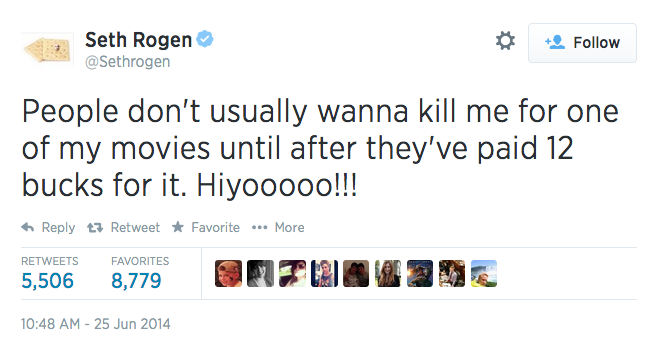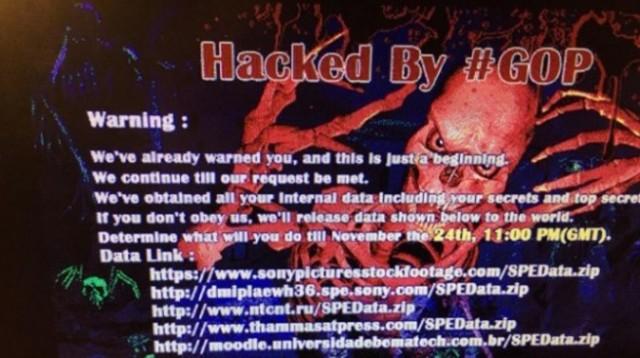Overview
2014 Sony Pictures Hack refers to a cyberattack which compromised the Sony Pictures entertainment company’s computer network in late November 2014, resulting in the leak of several unreleased films and confidential information regarding Sony staff.
Background
The Interview
On June 11th, 2014, Sony Pictures Entertainment’s official YouTube channel uploaded the first teaser trailer for the film The Interview. The film follows a talk show host and his producer, played by James Franco and Seth Rogen respectively, who are hired by the CIA to assassinate North Korean dictator Kim Jong-un after the two arrange an interview with him. Within six months the trailer gained over 7.4 million views.
On June 25th, a representative for the North Korean Ministry of Foreign Affairs released a statement[2] about the film, saying:
“If the United States administration tacitly approves or supports the release of this film, we will take a decisive and merciless countermeasure.”
The same day, Seth Rogen[1] tweeted a joking response to the threat. In less than 48 hours, the tweet received over 8,000 favorites and over 5,000 retweets.
Sony Pictures Entertainment Hack
In late November 2014, weeks before the box office premiere of The Interview, Sony Pictures Entertainment’s online database was hit by critical cyberattacks from a group of hackers who identified themselves as the Guardians of Peace (GOP), leading to the leak of private corporate data at an unprecedented volume in the tens of terabytes in early December. Among other things, the leaked data included many scripts and screeners of recently released or upcoming films to be distributed by the studio, including Fury, Annie, Still Alice, Mr. Turner and To Write Love On Her Arms, as well as the personally identifiable information and corporate profiles of over 6,000 employees.
Notable Developments
North Korea Denies Involvement
On December 4th, North Korean officials released a statement denying any involvement in the cyberattack, though one of them implied that the hack “might [have been] a righteous deed” of its supporters or sympathizers. Also on December 4th, researchers at the computer security firm AlienVault revealed that the computer that compiled the malware responsible for compromising the Sony network was written using Korean characters.[5]
Email Threats
On December 5th, Variety reported that Sony employees were receiving mass threatening emails, purportedly from the hackers who carried out the cyberattacks.
“Please sign your name to object the false (sic) of the company at the email address below if you don’t want to suffer damage. If you don’t, not only you but your family will be in danger.”
Franco and Rogen SNL Sketch
On December 6th, The Interview actors James Franco and Seth Rogen appeared on Saturday Night Live, where they joked that hackers had leaked humorous and embarrassing photos of each other in compromised positions (shown below).
Guardians of Peace Statement
On December 8th, the GOP created a Github[6] page, which demanded that Sony stop showing the “movie of terrorism which can break the regional peace and cause the war,” in reference to The Interview. In addition, 2.7 gigabytes of files were released by the group.
Leaked E-Mails
Included in the 2.7 gigabytes of files were emails from Sony Pictures Television president Stephen Mosko and Sony Pictures Entertainment co-chairman Amy Pascal. On December 9th, Gawker[4] reported on leaked emails between Pascal and film producer Scott Rudin, in which the two argue about an upcoming Steve Jobs biopic and the ego of actress Angelina Jolie, whom Rubin referred to as a “minimally talented spoiled brat.” Additionally, The Wall Street Journal reported that several of Pascal’s leaked emails revealed that Sony planned on making a crossover film between the comedy film series Jump Street and Men in Black.

